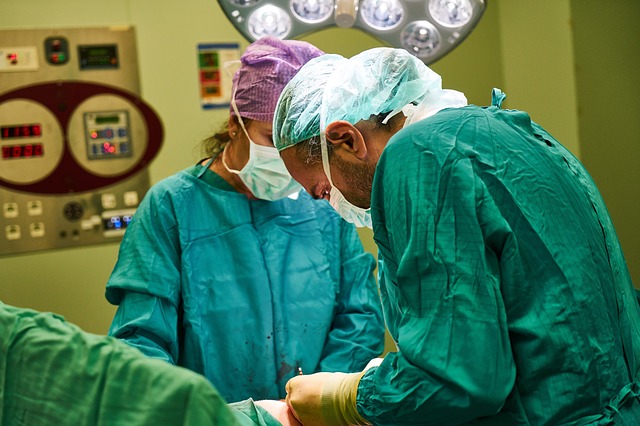Cosmetic Surgery: A Phenomenon of Empowerment or Insecurity?

Is cosmetic surgery a sign of empowerment or insecurity? This question has been debated for many years, and there is no clear answer. Some people believe that patients who pursue cosmetic surgery feel empowered to take control of their lives and appearance. Others think these patients often feel insecure and seek validation from others. There is no right or wrong answer, but it is an exciting topic to discuss. This blog post will explore the debate surrounding cosmetic surgery and body positivity. We will also look at the opinions of both sides of the argument.
The History of Cosmetic Surgery
The history of cosmetic surgery is long and varied, with the first documented procedures dating back to ancient Egypt. In those early days, it was primarily men who underwent surgery to improve their appearance. For example, pharaohs would have operations to make them look more like gods, while other men had their noses repaired after being injured in battle.
It wasn’t until the late 19th century that women began to embrace cosmetic surgery in earnest. At that time, the most popular procedures enhanced a woman’s beauty rather than correcting a physical imperfection. One of the earliest examples of this trend is teardrop breast augmentation, which became popular around the 1960s. This procedure involved inserting a silicone implant into the breast to create a more youthful and voluptuous look.
In recent years, there has been a shift in how we think about cosmetic surgery. Thanks to the body-positive movement, more and more people are embracing their imperfections and viewing surgery as a way to correct something they’re unhappy with rather than as a means of achieving perfection.
The Empowerment of Cosmetic Surgery
Though it is often seen as a controversial topic, cosmetic surgery is becoming increasingly popular. This growing trend has led to many people asking the question: why? Why are people, particularly women, choosing to go under the knife?
The answer may be more straightforward than you think. In many cases, patients who pursue cosmetic surgery feel empowered to take control of their bodies and lives. After years of feeling self-conscious or unhappy with their appearance, they finally feel like they have the power to change it. For some women, this can be a liberating experience.
Of course, some argue that cosmetic surgery is nothing more than a way to conform to society’s unrealistic beauty standards. And while it’s true that the media plays a role in perpetuating these ideas, it’s important to remember that every woman has the right to make choices about her body. Whether you’re considering cosmetic surgery or not, body positivity is essential to love yourself just the way you are.
The Insecurity of Cosmetic Surgery
It is no secret that our society is obsessed with youth and beauty. We are constantly bombarded with images of perfection, which can damage our self-esteem. So it’s no wonder that cosmetic surgery has become such a phenomenon.
Patients who pursue cosmetic surgery feel empowered to take control of their appearance and lives. They often believe themselves capable of achieving the same level of perfection that they see in the media. However, this pursuit of perfection can sometimes lead to disastrous results.
There have been numerous cases of patients becoming addicted to cosmetic surgery, as they are never quite satisfied with the results. This can lead to severe physical and psychological problems and financial ruin.
So, while cosmetic surgery can be an empowering force for some, it can also be a hazardous tool in the hands of those who are insecure about their appearance. Therefore, it is essential to consult with a qualified professional before making any decisions about undergoing cosmetic surgery. They will be able to help you assess your motivations and ensure that you are making the best decision for yourself.
The Cost of Cosmetic Surgery
While the cost of cosmetic surgery procedures can vary widely, patients who pursue these treatments often believe that the benefits outweigh the costs. In a recent survey, 84% of patients said they were satisfied with their results, and nearly half reported feeling more confident after their procedure.
The cost of cosmetic surgery is often a barrier to entry for many people. Still, it is essential to remember that these procedures can profoundly impact a person’s life. If you are considering cosmetic surgery, be sure to consult with a board-certified plastic surgeon to discuss your goals and expectations.
Some of the most common types of cosmetic surgery include breast augmentation, liposuction, and tummy tucks. These procedures can help patients achieve their desired look, but it is essential to remember that they are not without risk. Complications from cosmetic surgery can include infection, scarring, and adverse reactions to anesthesia.
The Risks of Cosmetic Surgery
When patients pursue cosmetic surgery procedures, they are often taking risks with their health and safety. While many procedures are minimally invasive and have low complication rates, there are always potential risks. These can include:
- Infection
- Bleeding
- Blood clots
- Nerve damage
- Scarring
- Allergic reactions
- Anesthesia complications
Of course, these risks must be weighed against the procedure’s potential benefits. For many people, the rewards outweigh the risks. But it is crucial to be fully informed before deciding about cosmetic surgery. Patients should consult with a board-certified plastic surgeon to discuss their options and ensure they are comfortable with the decision they are making.
The Recovery from Cosmetic Surgery
The recovery from any cosmetic surgery is different for each individual. Depending on the extent of the procedure, some patients may only require a few days to recover, while others may need up to two weeks. Following your doctor’s orders during the recovery process is essential to ensure a successful outcome. Here are a few tips to help you through the recovery process:
- Rest and relax as much as possible. This will help your body heal and reduce swelling.
- Drink plenty of fluids and eat healthy foods to help your body recover.
- Avoid strenuous activity or heavy lifting for at least two weeks after surgery.
- Follow your doctor’s instructions for caring for your incisions and caring for yourself during recovery.
In conclusion, cosmetic surgery is a phenomenon of empowerment, not insecurity. Patients who pursue these procedures often do so because they feel empowered to take control of their appearance and boost their self-confidence. While there are risks involved with any surgery, the rewards can be life-changing for many people. If you are considering cosmetic surgery, consult with a board-certified plastic surgeon to discuss your goals and expectations.


